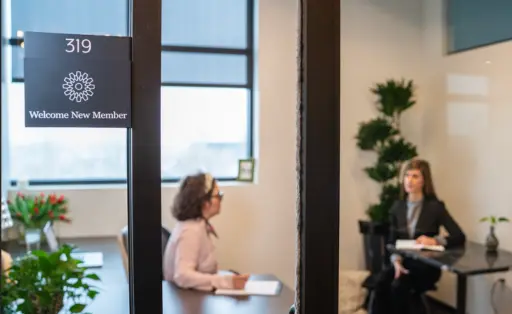20th August 2025
Education
Why Asking for Help is Not a Sign of Weakness

Why Asking for Help Is Not a Sign of Weakness
Written by the Shift Community Team • Updated: August 20, 2025
Quick answer: asking for help is not a sign of weakness. It shows strength, confidence, and good judgment because you focus on the best solution, not just a solo answer. People who ask for help learn faster, avoid mistakes, and build trust with their teams.
Quick Facts About Asking for Help
- Signals strength, confidence, and self-awareness
- Leads to faster problem solving and fewer errors
- Builds trust and improves team culture
- Works best as a two-way practice, ask and offer help
- Easier at Shift Workspaces in both Denver and Littleton because the community is supportive
People, even leaders and executives, often shy away from asking for help for fear of showing weakness. Leaders in particular can feel like they are expected to know everything, so asking for guidance can seem off limits.
In reality, the opposite is true. No one knows everything, and the most successful leaders build strong circles of support. They reach out to mentors and peers, invite ideas, and solve problems faster because they do not go it alone.
At Shift, you are surrounded by a supportive professional community, mentors, peers, and people who get it. From our community team to member meetups and workshops, there is always someone willing to lend a hand or share what they know. Learn more on our About page.
Asking for Help Is a Sign of Strength
Asking for help is a sign of strength, confidence, and resourcefulness. In a fast-moving world, surrounding yourself with people who can help in different situations is highly valuable. It also makes you more approachable. When leaders ask for help, the people around them feel safer doing the same.
There is another benefit. When you ask for help, you give others a chance to contribute. Most people are proud to be asked for their expertise. You are not imposing, you are opening the door to connection and collaboration.
Make It a Two-Way Street
Asking for help does not mean handing off responsibility. It means working together. Be clear about what you need, share what you have tried, do your part, and be ready to show up when others need you. Healthy teams and communities are built on this give and take.
How This Looks at Shift
- Ask your neighbor for a quick gut check on a proposal.
- Ask our community team to connect you with a member who has done something similar.
- Join a member event to meet people who can challenge your thinking and share shortcuts.
- Book a meeting room and invite a few peers to workshop an idea.
Whether you need input on a project or just an ear for your ideas, do not hesitate to reach out. More often than not, people will be happy to help, and you will create new paths for future collaboration.
Explore Shift
Looking for a workspace that feels like a support system? Explore coworking and private office options.
FAQs About Asking for Help and the Shift Community
No. Asking for help signals strength, self-awareness, and a focus on getting the best outcome.
It shows confidence, openness to feedback, and the ability to use the right expertise at the right time.
Be specific about the problem, share what you have tried, ask a clear question, and offer help back when you can.
Community managers connect members with relevant peers, events spark new connections, and spaces are set up to collaborate quickly.
-
Read More
New Year, New Business Presence: Why a Virtual Office in Denver Elevates Your 2026 Brand
Start 2026 with a stronger business presence. A virtual office in Denver gives you a professional address, mail handling, and flexibility at Shift.
-
Read More
How a Private Office Helps You Build Better Work Habits in 2026
At the start of the year, a lot of people come back to work wanting things to feel different. Fewer rushed mornings. Fewer days where everything feels scattered. More time […]













